Conure birds are brightly colored social birds from small to medium size and are known for their different behavior and characteristics. The top 14 facts of conures are discussed below:
Table of Contents
1. Color Variant:
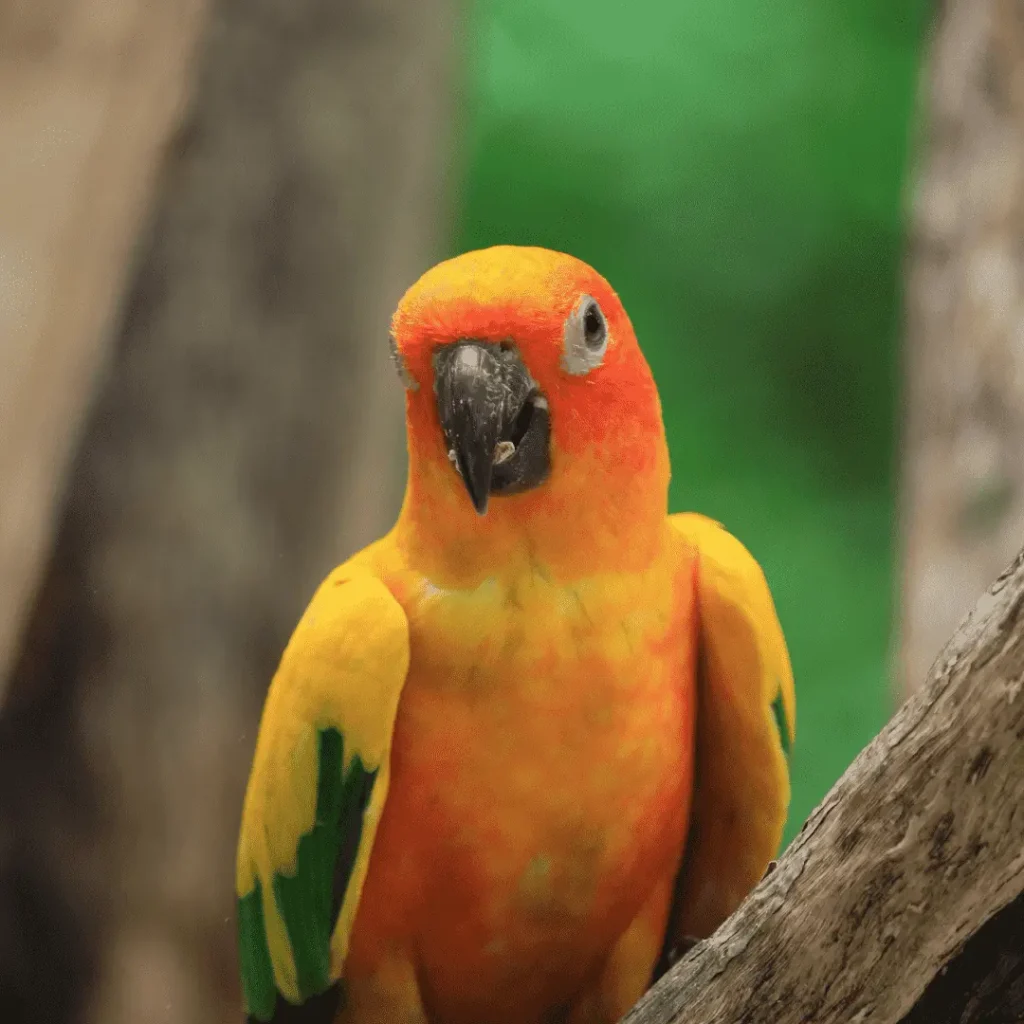
Conures are so colorful birds found in nature and have different color variants.
For Example:
Green, red, orange, yellow, and blue. Green-Cheeked Conure is in a combination of three colors: green, greyish, and red. Sun Conure is in a combination of three colors: yellow, orange, red, and green or blue.
2. Love Owner:
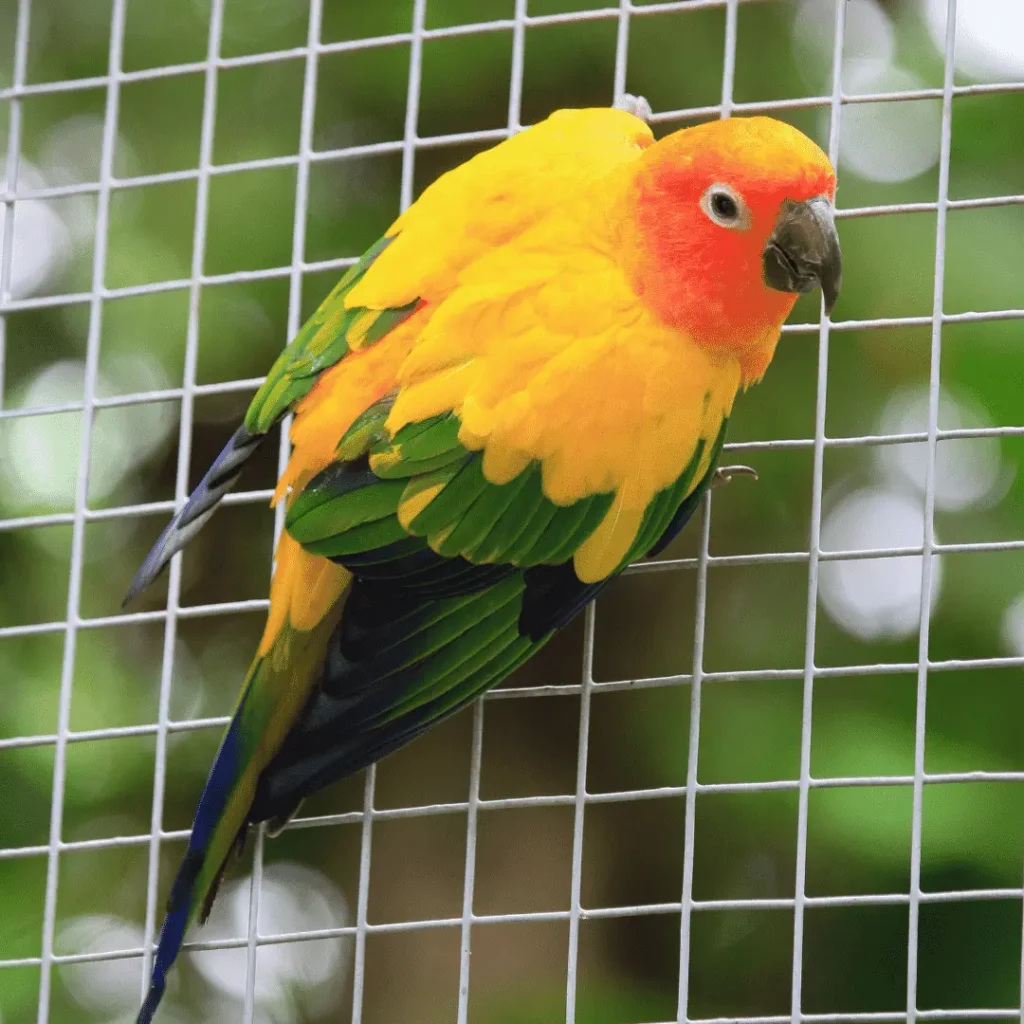
Conures are so loyal birds. These birds show interest in their owner who cares for and grooms them. They sit on their neck and show their love by playing with them for a long time even spending the whole day. They learn the sound of the owner and repeat some words. They call their owner to play with them and follow their owner by flying around them.
3. Feather fluffing:
When conures are comfortable in the environment or a happy mode they fluff up their feathers. They also fluff the feather up to show attention or excitement. Sometimes to maintain their body temperature they fluff their feathers up mostly in cold weather. If they fluff the feathers for a long time it means they have some health issues.
4. Clown performance:
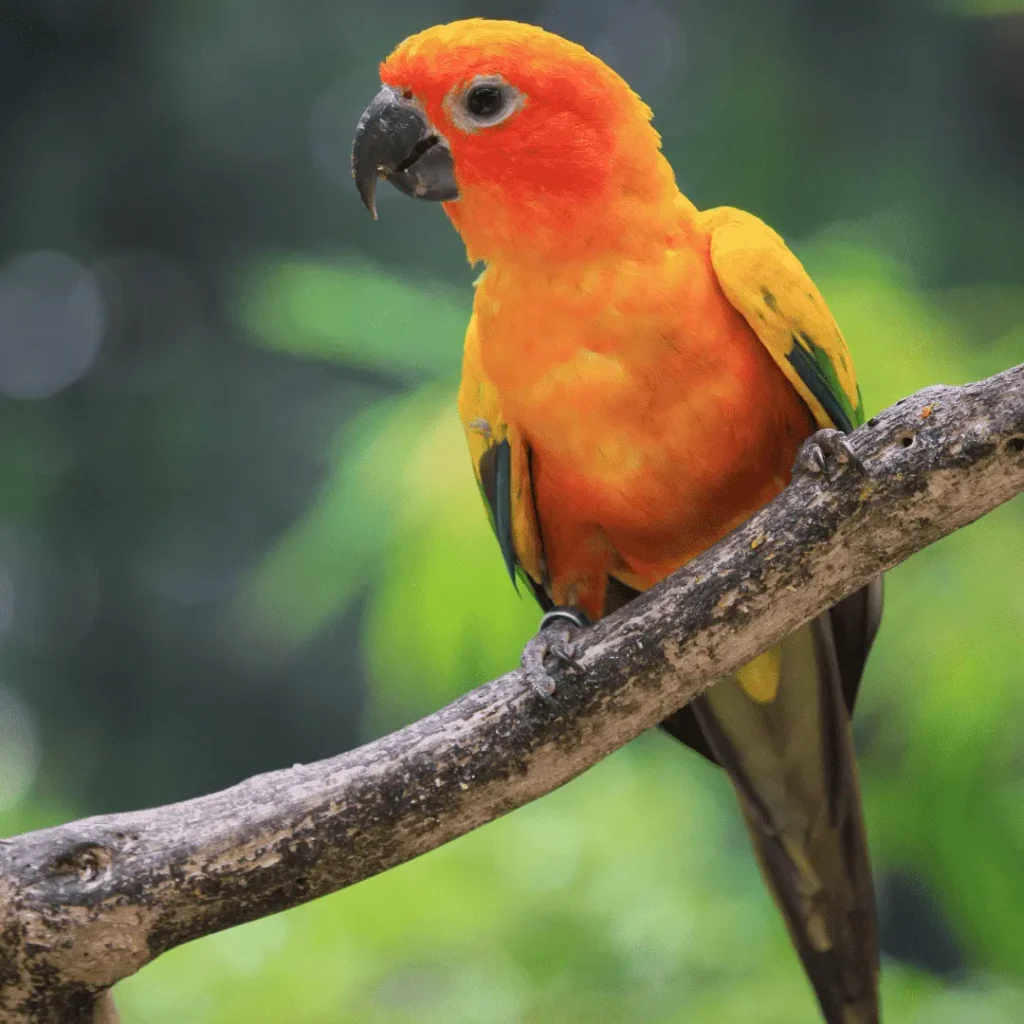
These birds are also known as mini clowns because they perform so many tricks that their owners trained them. The trainer uses their finger or stick to train the conures.
For Example:
They are trained to spin around the owner and come back when the trainer calls them. They also wave their foot in the air or step up their finger at the owner’s command. They are also known as retrievers because they fetch things that they can easily pick up at the command of their owner. They also enjoy flipping or rolling over. They also poll the small balls in the hole. The most important thing is the dance performance with the rhythm of the song.
5. Chewers:
Conures love chewing the things that help them to maintain their health and beak. Toys are given to them for chewing when groomed as a pet but in nature, they chew the wood of the trees.
6. Social:
Conures are highly social birds. In the wild, they lived in a flock and made social bonds with other members. As a pet, this helps the owner and trainer to easily train it. They also love to live with other birds.
7. Sound level:
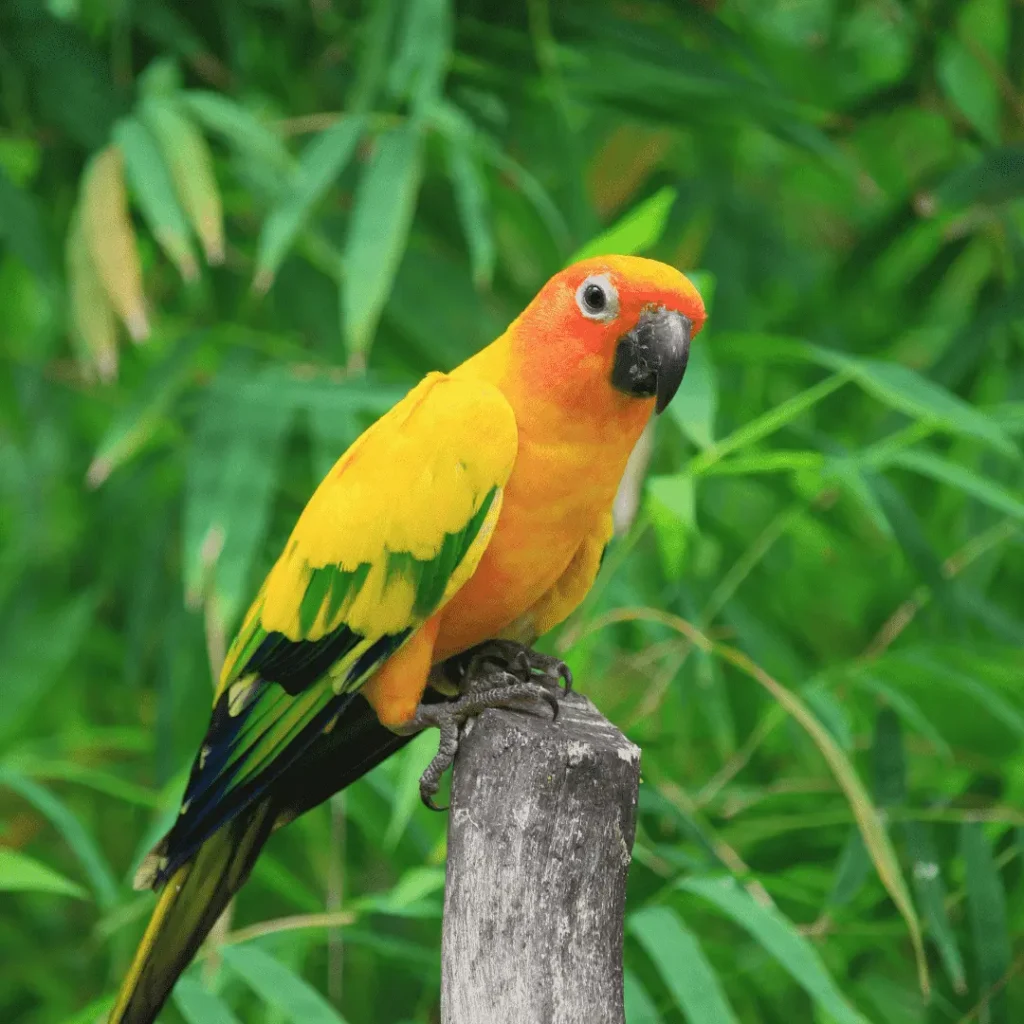
Some species of conures are quiet in nature as compared to other species that are loud. Their sound level changes with the change in the environment or behavior.
For Example:
In the morning and late afternoon, they speak loud. When they need attention they speak loud. When they are excited they speak loud. Some trainer quit their conures by providing them with positive reinforcement.
8. Mimic Sound:
They are small to medium in size but some species can mimic the sound like the other parrots. They can mimic other birds, animals, instruments, and human sounds after learning them.
9. Sleeping time:
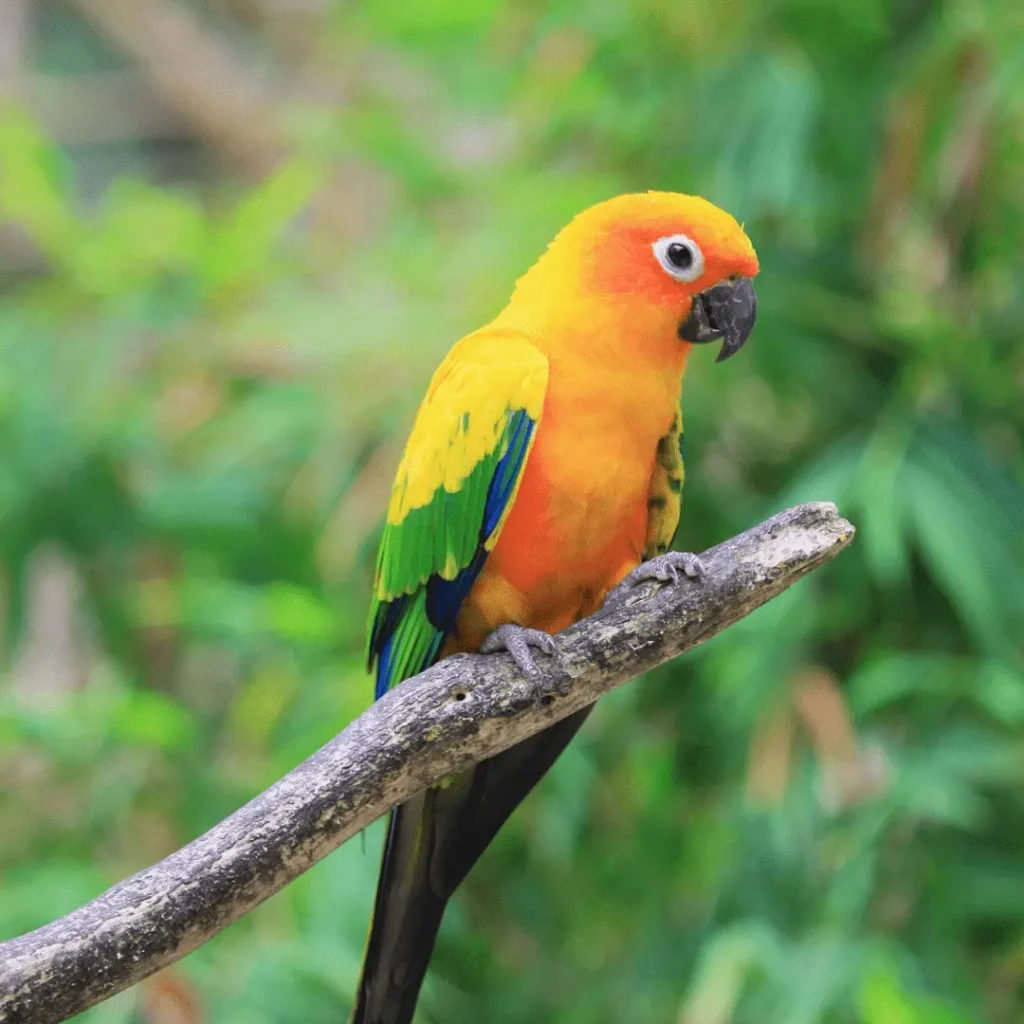
They have a great sleeping time in which they relax their body and mind. They sleep a maximum of 12 hours at night time daily.
10. Life Span:
They lived 20 to 30 years of age. Due to this so many grooms them as a pet so they take them for a long period of time with them.
11. Diet:
They need a complete balance in their diet. When they are in the wild they eat fresh vegetables, fruits, and nuts. They also drink fresh water in the wild but they need extra care when grooming them as pets and providing them with fresh fruits, vegetables, pellets, and water that they need. Must see their balanced diet.
12. Exercise Needs:
They need daily exercise. For their mental refreshment provide them different types of toys and for their body refreshment provide them water for bathing and provide them some area where they can fly.
13. Potential Health issues:
Feather picking and respiratory diseases are common in them. Feather picking is overcome by providing something for chewing like toys or pieces of wood so they spend time chewing and their feather-picking habit can be cured. If this does not work then provide them the necessary vitamins.
14. Training Difficulty:
They are average learners who take some time to learn new tricks, behaviors, and sounds but after that, they do not forget them for a long time even in their whole lives. The most important thing that must be considered while training is your social bond with the bird, if your bond is strong then they learn quickly and if your bond is not strong, then they take time to learn even sometimes do not learn anything.
FAQs:
Q. 1 Are doves and conures can live with each other?
Ans Yes, conures are highly social birds and love to live with other birds like doves.
Q. 2 What If I provide only nuts to my conures?
Ans You have to give them a proper diet to live a healthy life. Without the proper balanced diet, your pet’s shine fades, and less chance of breeding.
Q. 3 What is the maximum size of conures?
Ans. The maximum size of conures is measured at 41 cm.
Q. 4 What is the major difference between conures and cockatoos?
Ans. The major difference between conures and cockatoos is the crest(a group of feathers on the head of cockatoos).

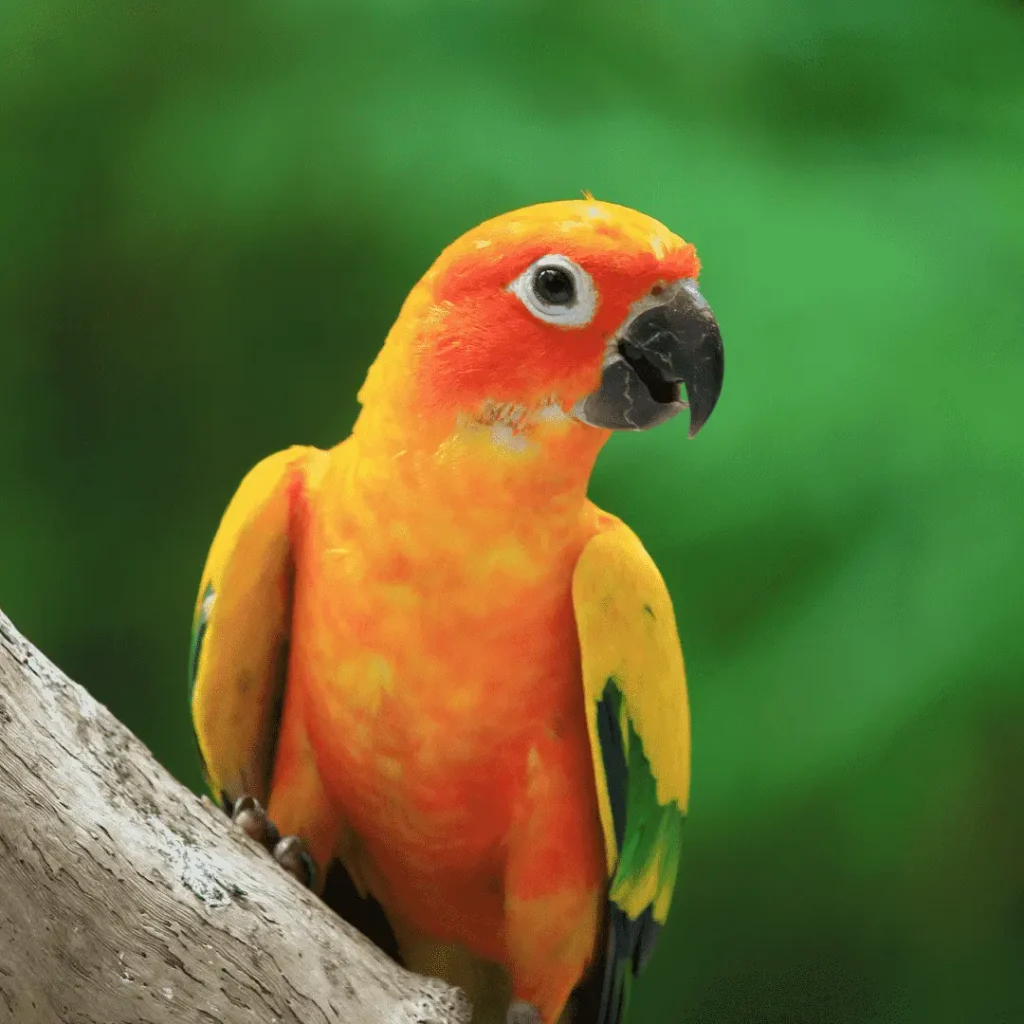
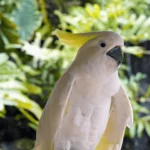
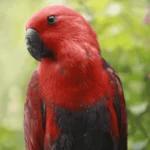
Pingback: Exploring the Incredible Types of Woodpeckers in 2025
Pingback: Top 8 Best Green Parrots That Will Steal Your Heart